Inner Reflections
May 12, 2020
Episode 72
The Power of FORGIVENESS
At some point we all face betrayal, wrong doing and even injustice.
Without bringing mindfulness to these challenges we harbor anger, resentment and animosity which over time poison the heart and the body. They have the potential to make us sick and shorten our lifespan.
Prolific teachers like Jesus and Buddha taught that through these difficulties there is another way — the way of freedom and peace.
In this podcast, we will explore the powerful practice of forgiveness.
Hope you enjoy this inspiring episode!
Thank you for supporting the podcast by rating, reviewing, subscribing and sharing with your community!
Tell Your Friends & Share Online!
Subscribe & Review: iTunes | Spotify | Stitcher | Youtube
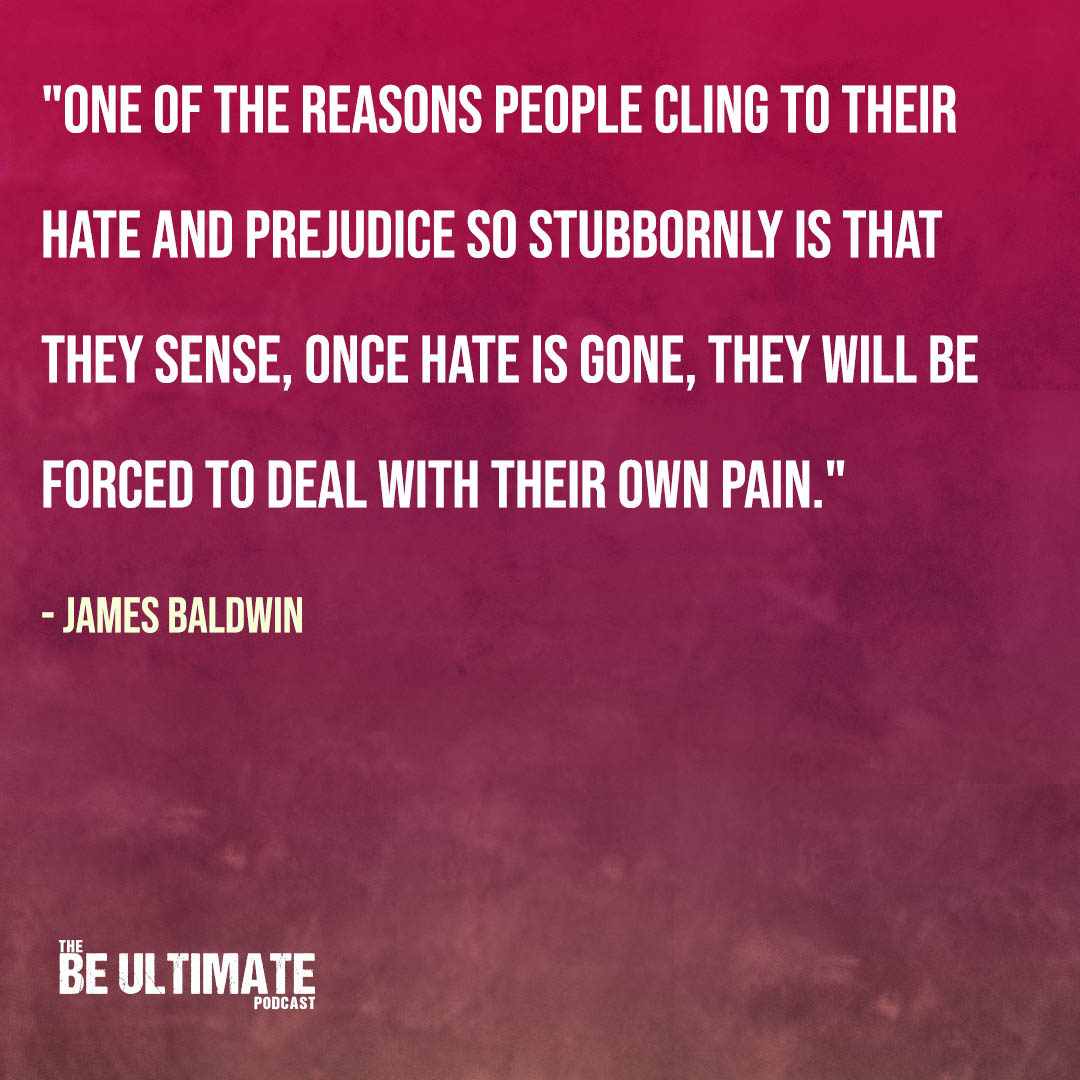
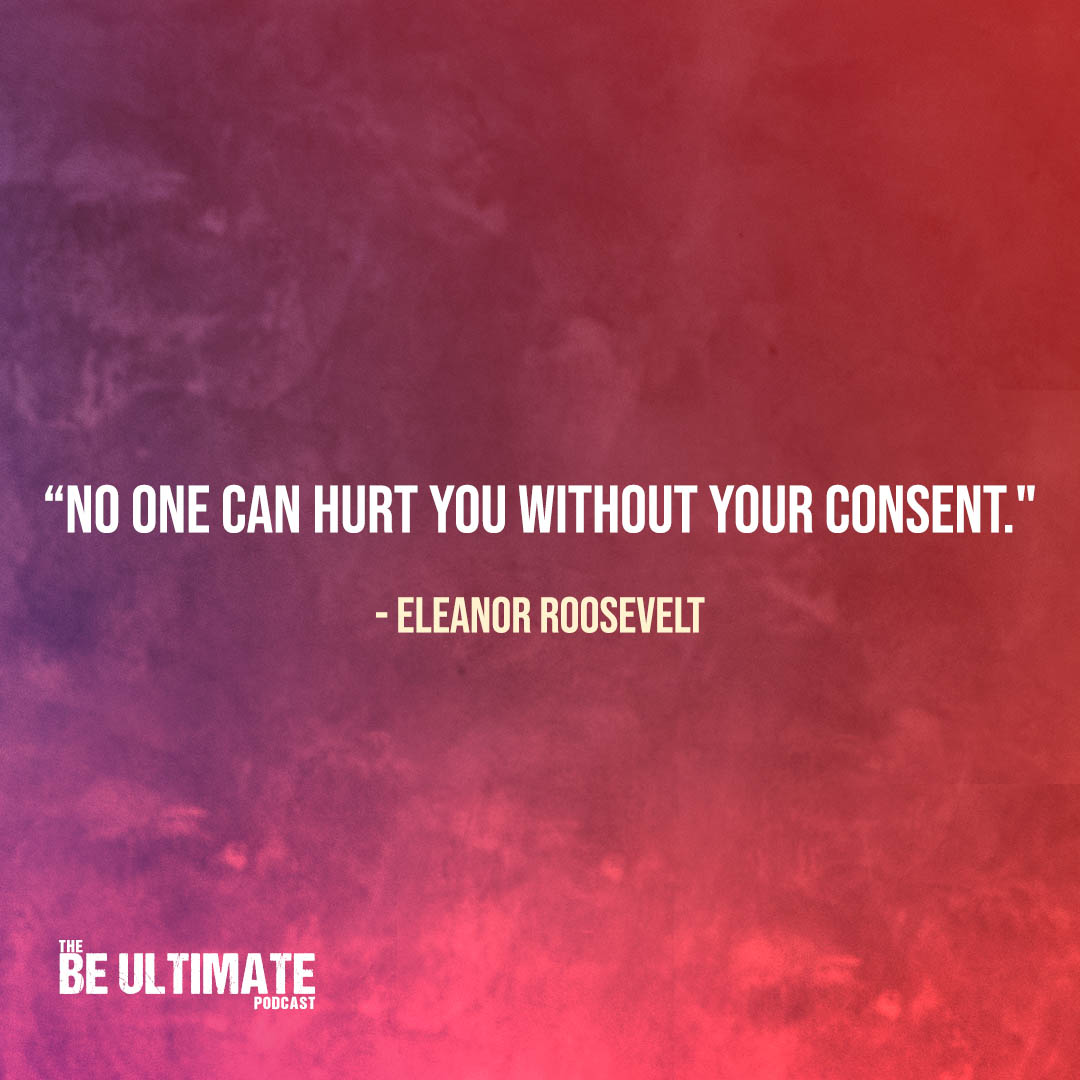
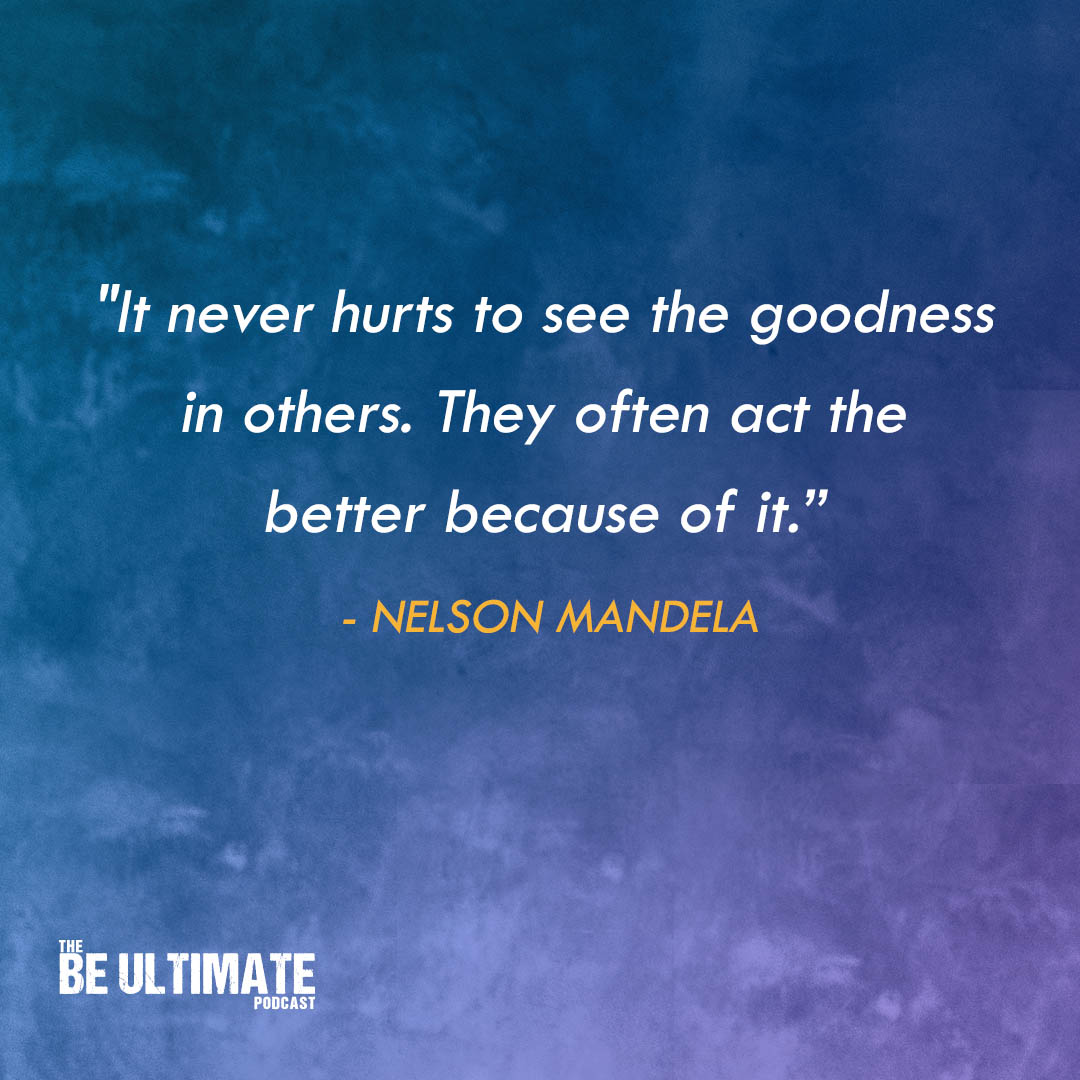
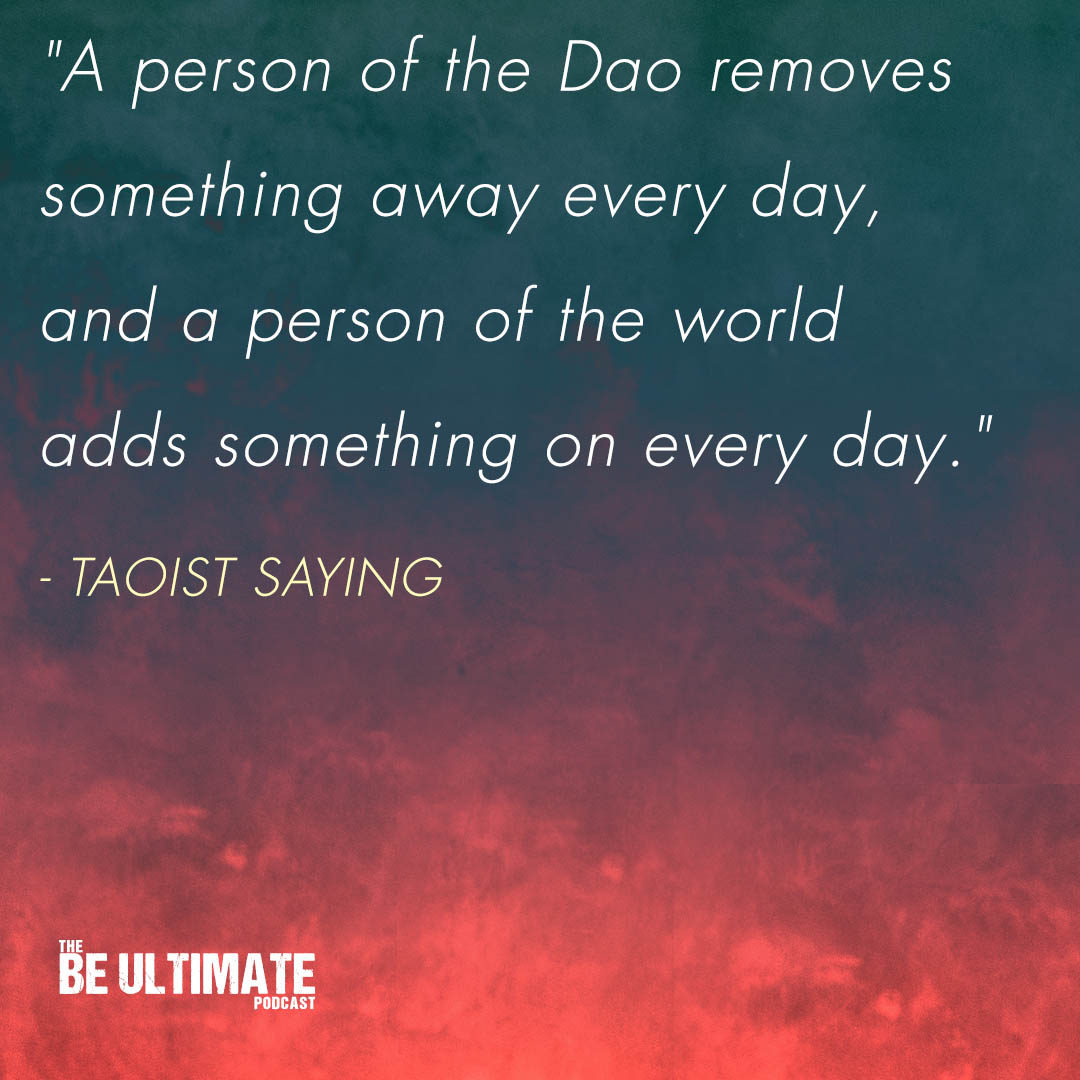
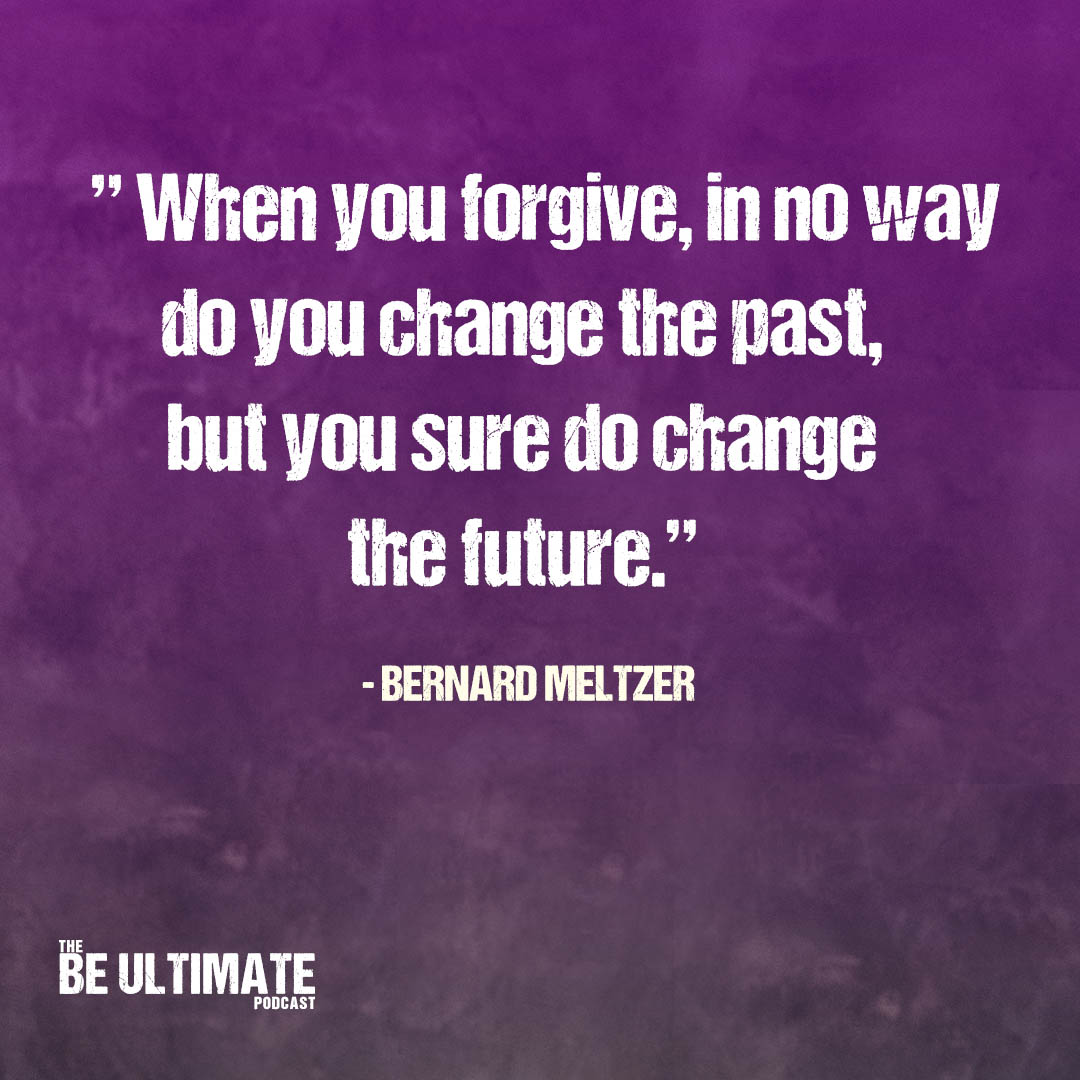
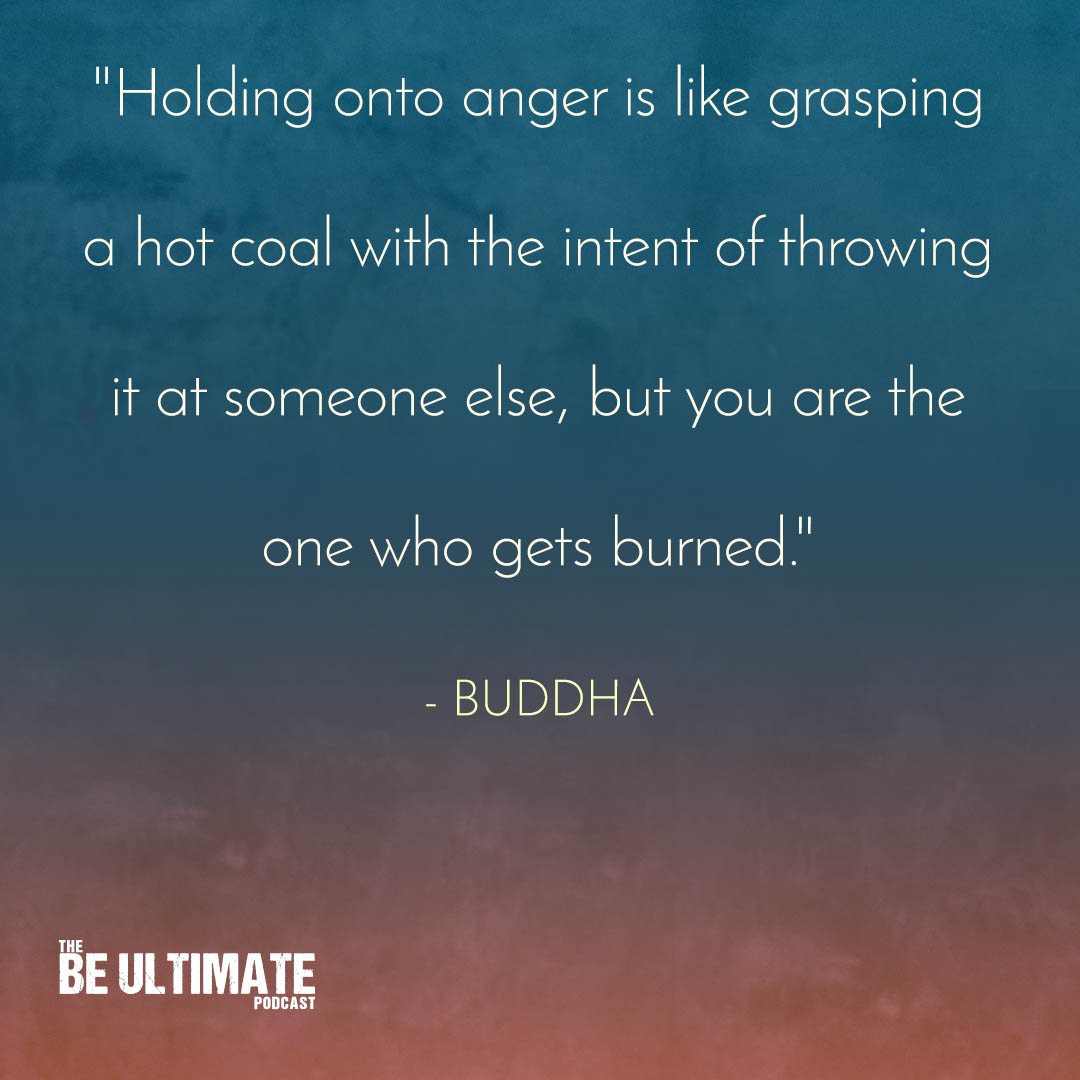
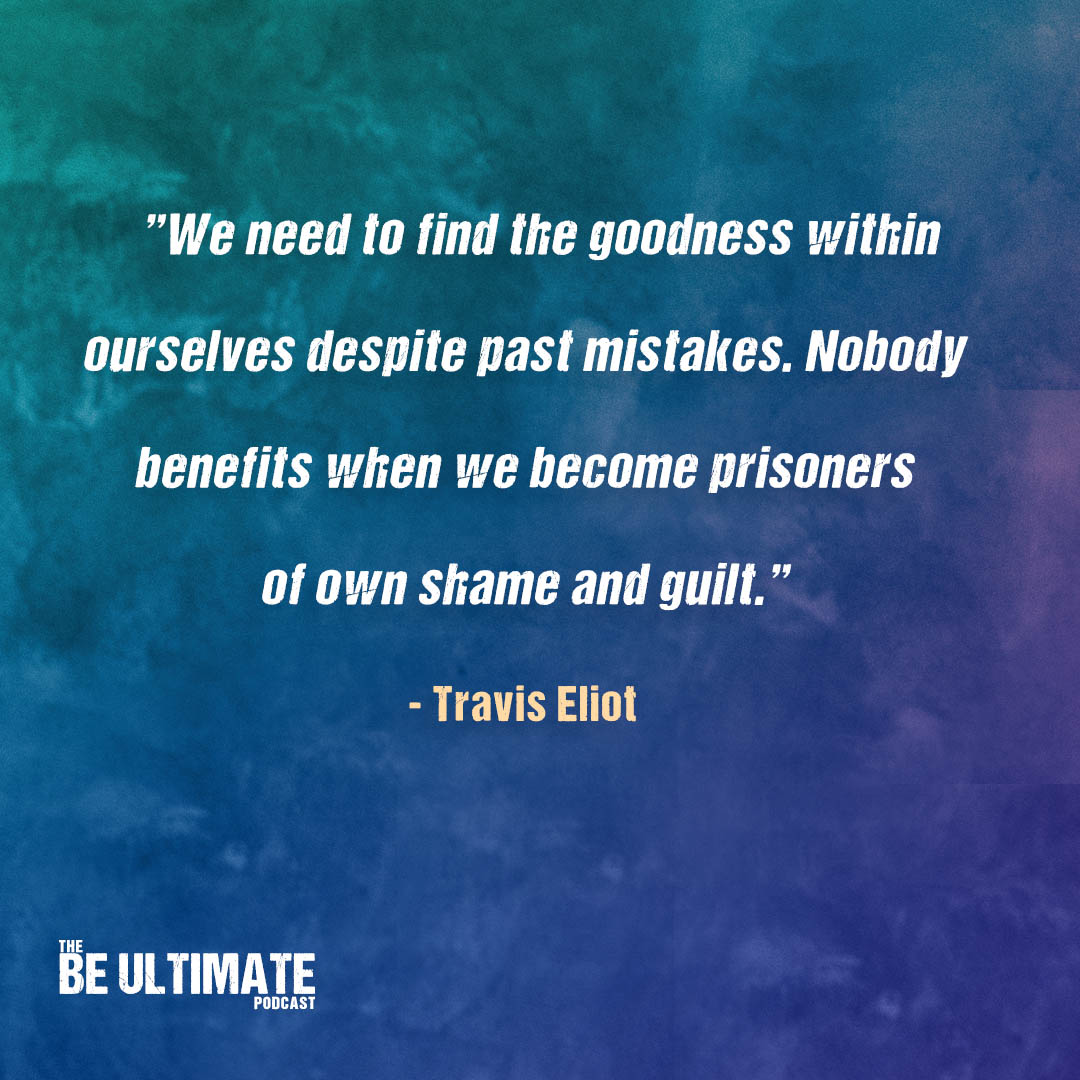
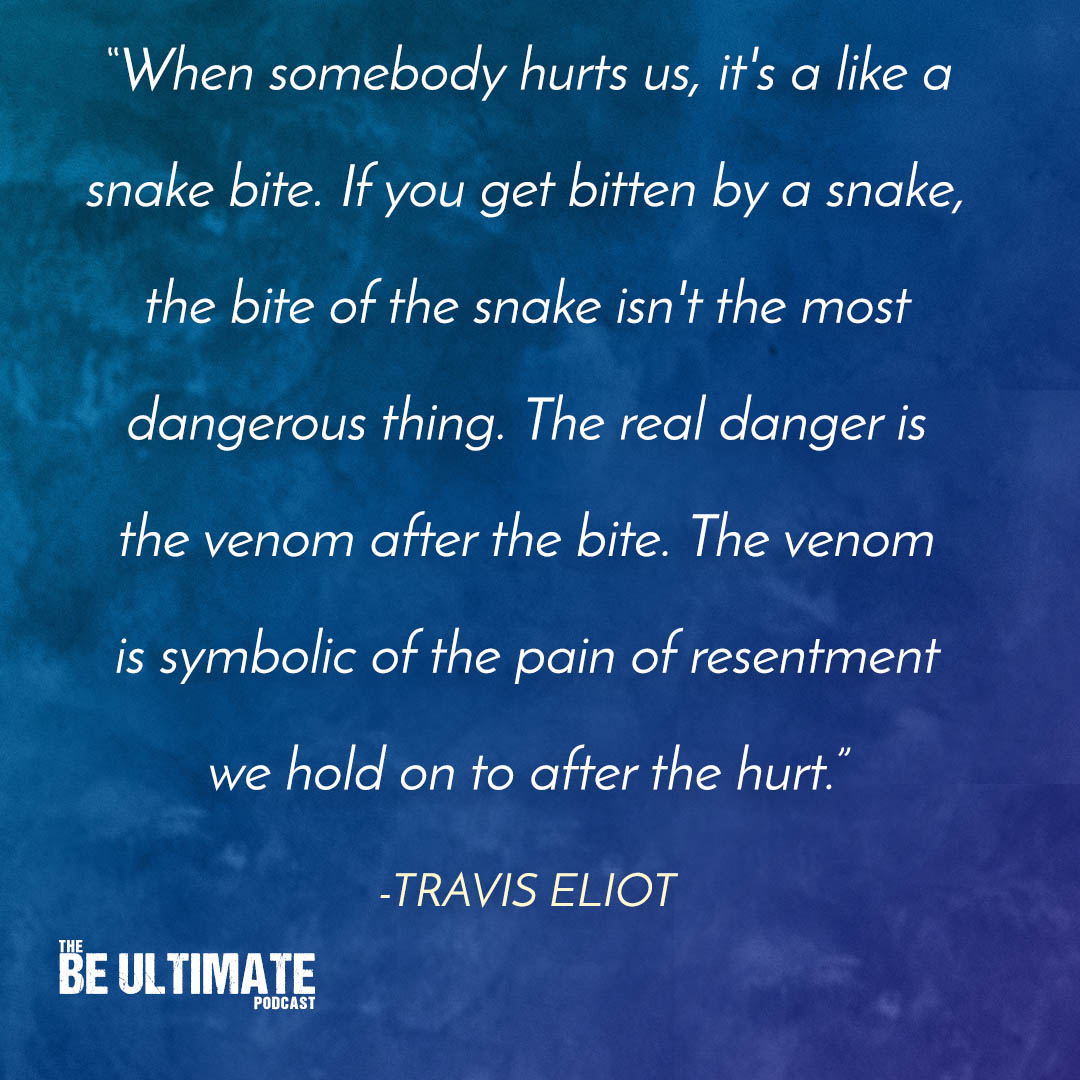
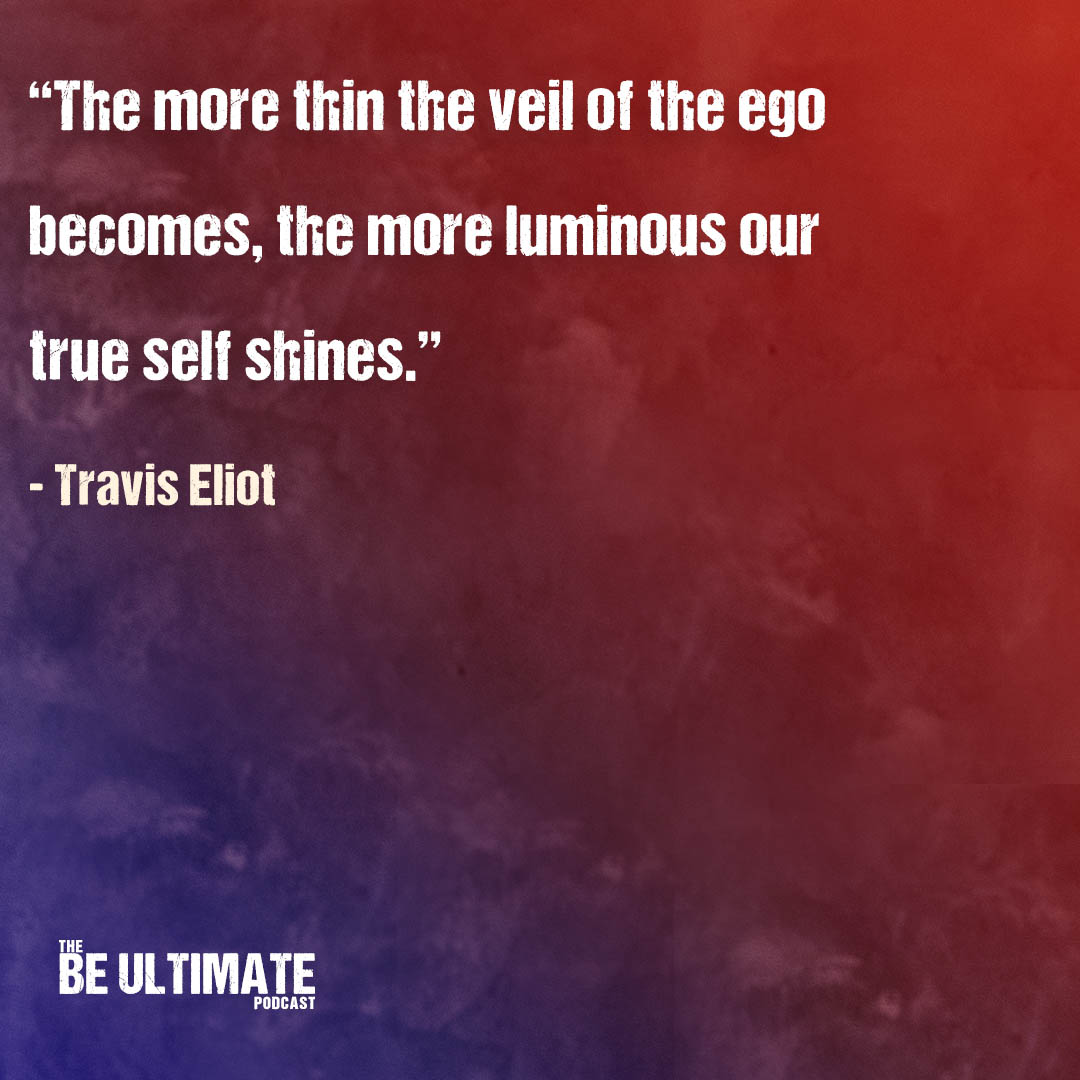
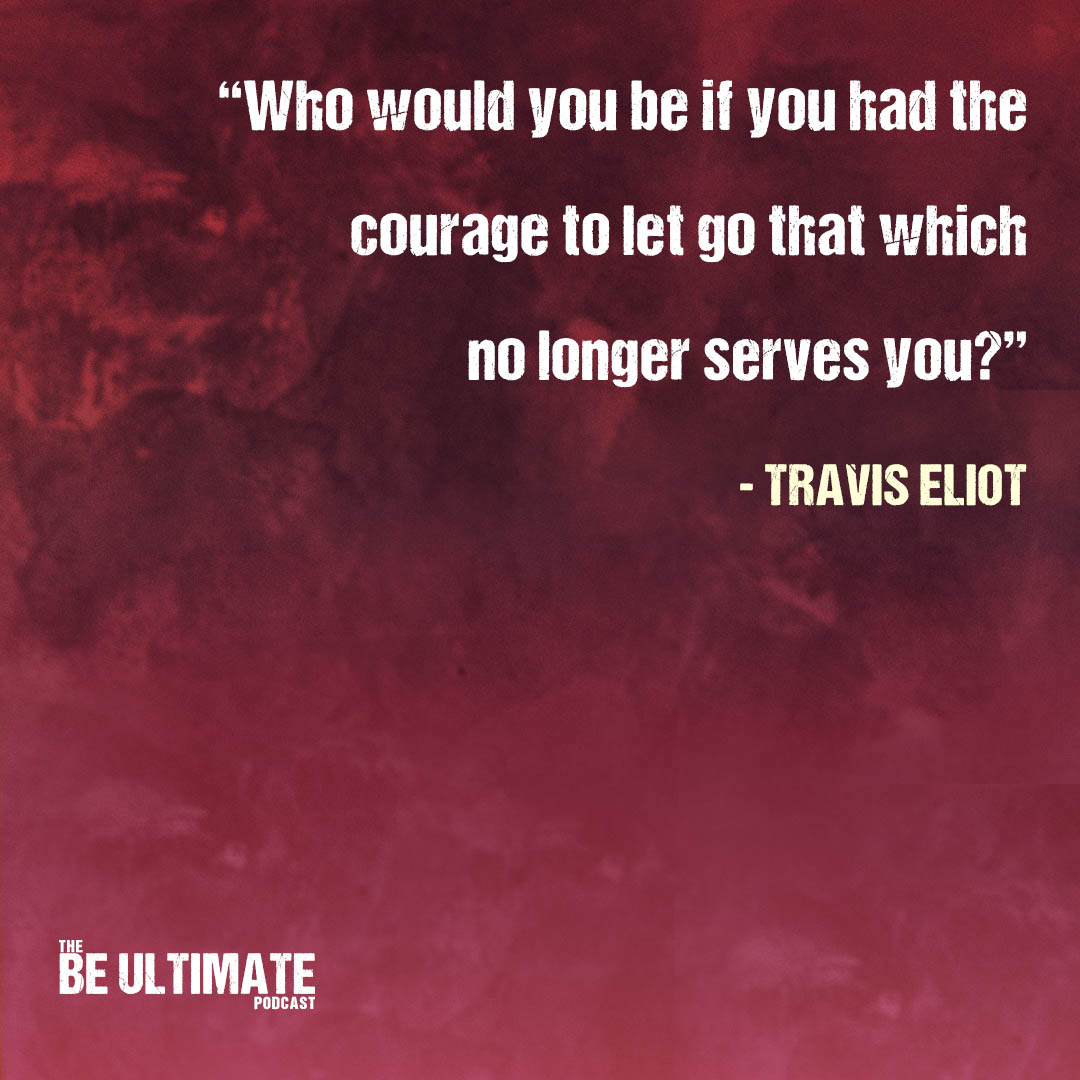
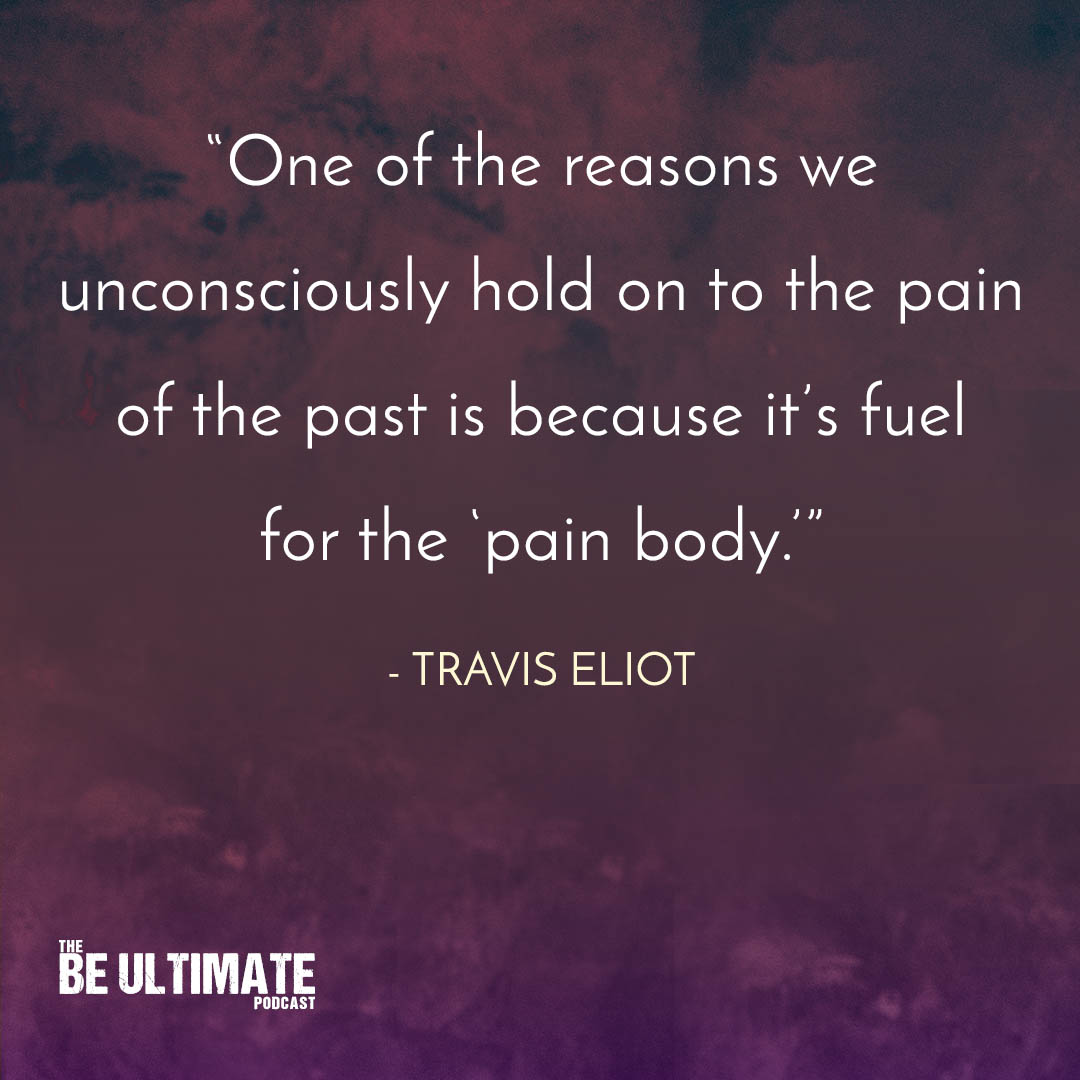
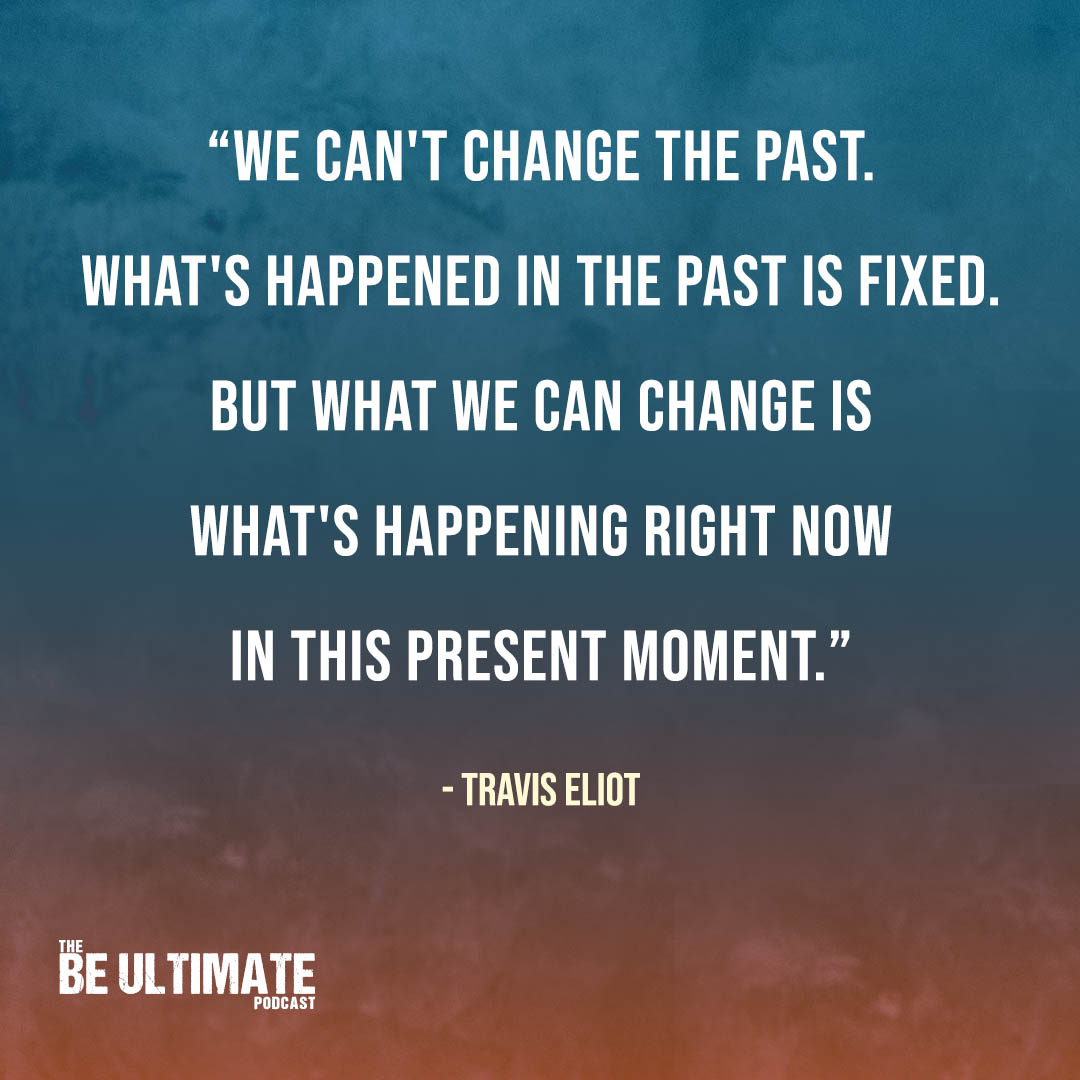
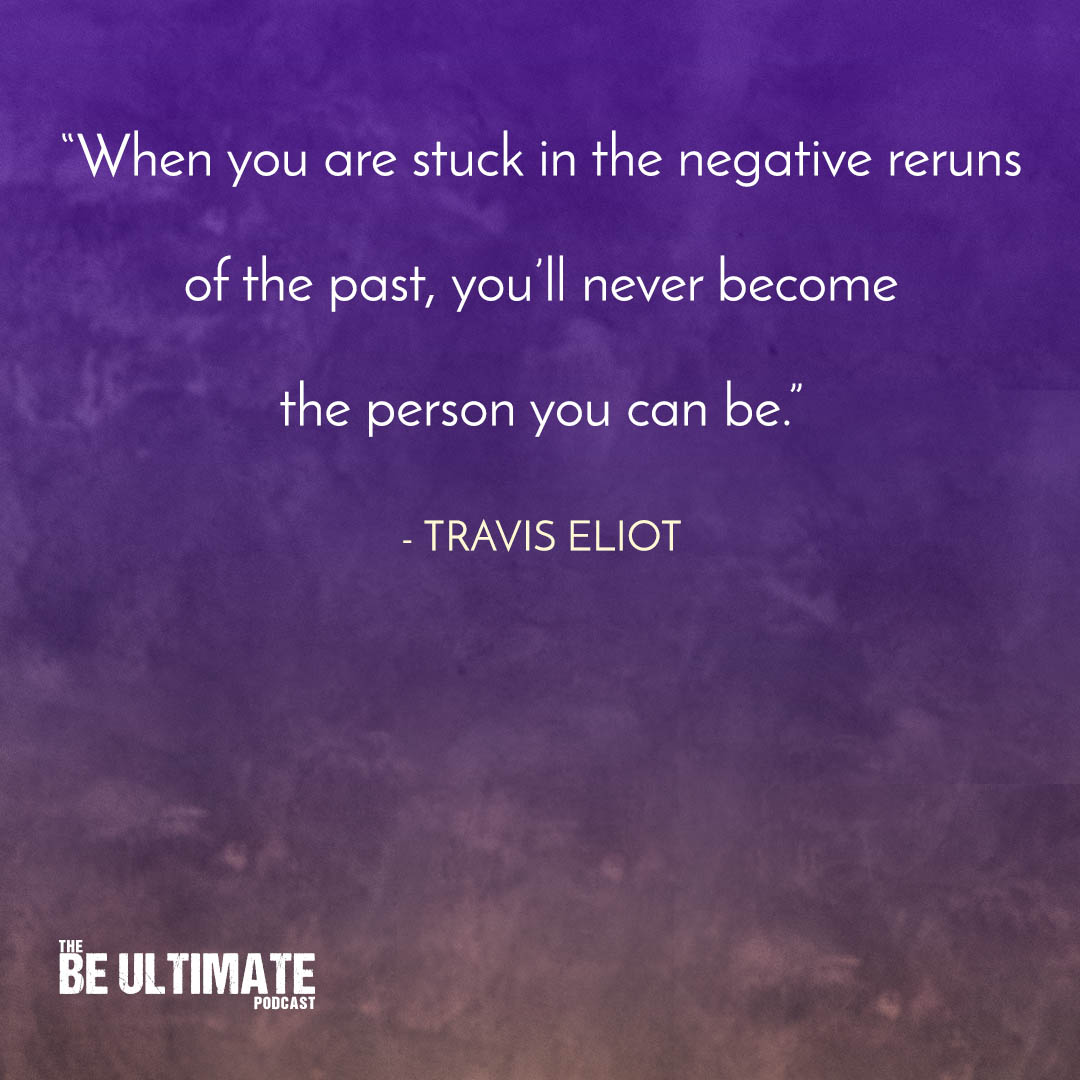
[The following is the full transcript of this episode of “The BE ULTIMATE Podcast.” Please note that this is direct from Travis speaking unscripted and unedited.]
Welcome to “The Power of Forgiveness.”
On this podcast, we are going to explore a topic that is difficult. It’s difficult, but it’s also necessary because it’s something that universally, as humans, we all experience.
Have you ever been betrayed? Have you ever been cheated on, lied to, stolen from, or violated in some way?
The answer, if you’re a human being, is yes. We all have. We’re all in the same boat. Now, most people, when they experience this, naturally, they hold on. They hold on to the anger. They hold onto the animosity. They hold on to the pain and the hurt that was caused by this other person inflicting some sort of wrongdoing on them.
“Holding onto anger is like grasping a hot coal with the intent of throwing it at someone else, but you are the one who gets burned.”
-Buddha
When we hold on to anger, we hurt ourselves more than we hurt others. When you harbor animosity, it turns into a type of poison within your body. It poisons your organs, your tissues, your cells, the bodily systems because of that mind-body connection. It has a major disruption within our homeostasis and our health and our well-being, when we’re ruminating on these angry thoughts from the past. We’re feeling this overwhelming trauma and hurt within our hearts, that affects the whole entire system of our body.
As human beings, especially as adults, the older we get, we have a tendency to really want to cling and hold on. It becomes more and more of a difficulty to just let go. And some people, of course, they hold on for years and years, sometimes even decades, forever playing the role of a victim, and always blaming and complaining, “This person did this to me 10 years ago, 20 years ago. And because they did this to me, I’m in this situation right now.”
When you are stuck in the negative reruns of the past, you’ll never become the person you can be.
They stay trapped in a perpetual cycle of negativity and toxicity. Again, the one that they’re hurting the most is themselves. Because of that, they never fulfill their potential. They never fulfill the potential of what’s possible in the future because they are stuck constantly in those reruns of the past. The TV station is stuck on the reruns, and it’s just playing over and over again. Those thoughts are creating certain emotions. Those certain emotions are creating certain thoughts. That cycle is repeating over and over. This wires into a personality, a state of being, which ultimately creates our reality.
“When you forgive, in no way do you change the past, but you sure do change the future.”
– Bernard Meltzer
We can’t change the past. What’s happened in the past is fixed. But what we can change is what’s happening right now in this present moment.
In this present moment, we always have the choice to let go of the pain and the trauma of the past when we’re ready. I’m not saying that this is easy. I’m not saying that you can just flip it like a switch. And if somebody’s hurt you, that immediately you can just let it go. In fact, that’s often called a spiritual bypass, where somebody hurts you, and you kind of numb out to it. You freeze up around it, and you pretend like nothing’s wrong. But deep down inside, you haven’t fully processed or digested the pain and the trauma.
So it’s a process, and it takes time. And it’s a bit of a titrating system, where you have to lean into the hurt as much as feels right for you. You don’t have to go in there and just rip the Band-Aid violently off all at once. It can be this gradual process, where slowly you’re healing. And when the pain gets to be too much, then you titrate out of that. You bring your awareness to something else. And then when you’re ready, you go back in. And maybe if you’re ready, you go back in, and you explore a little bit deeper. Of course, when you work with a powerful psychologist or a therapist, a lot of these guides have the insights and have the wisdom that’s right in alignment with the practices of mindfulness and what these wisdom cultures have taught about.
One of the reasons we unconsciously hold on to the pain of the past is because it’s fuel for the ‘pain body.’ The pain body is that part of us that is carrying pain. It’s the part of us that psychically, energetically, we’re carrying this vibration, again, within our thoughts and our emotions and our feelings, and within the tissues of our body, the pain of the past. So much of spiritual practice is about dissolving this pain body because it creates a type of clutter. It takes up space. It bogs you down. It weighs you down. It limits you. It keeps you from really manifesting and creating what it is that you want to in this life.
A lot of times, when we start talking about forgiveness, and maybe you’ve even experienced this so far within this talk. There’s a part of you that may say, “There’s no chance in hell. I’m not going to forgive this person. This person did this to me. They were wrong.” And, yes, they probably were wrong. “And I’m not going to let go of it.” And that’s coming from the pain body.
Who would you be if you had the courage to let go that which no longer serves you?
You see, within us, we have the ego. We have the pain body. But we also have within us a heart and a soul and a spirit. The soul, the spirit, the heart, the benevolent part of us knows that we have to let go of the pain in the past in order to become the person that we’re capable of becoming. But that pain body, because it sustains off the rumination of perpetuating those thoughts and those reruns of the past, that’s how it survives. So naturally, as you do this work, naturally, as you titrate into letting go and forgiving, it puts up a kind of a fight, and it resists it. But as you let go of the pains of the past, it really becomes the beginning of the end of the pain body.
The more thin the veil of the pain body becomes, the more luminous we become, the more bright we become. And you probably have experienced this within yourself or even with a friend, where a friend was in a relationship, and the relationship was very toxic. And then they broke up, or they went through some sort of a divorce or the engagement was called off, and it was painful. But at the other end of that tunnel of the breakup, that friend almost had a glow about them. And this is what I’m talking about. It’s like a psychic weight has been lifted off your shoulders.
You see, when somebody hurts us or has done something wrong to us, it’s a like a snake bite. If you get bitten by a snake, the bite of the snake isn’t the thing that hurts you the most. What really hurts you the most is the venom of the bite. The venom is symbolic of the poison of what we hold on to after the bite takes place.
After we’ve been hurt, the animosity, the anger that we feel, the hatred that we feel in perpetuating that, that is the poison. That’s the venom. And that’s the venom that ultimately can destroy our health, and ultimately put a cloud over everything that’s happening in the present moment, where we no longer even have the ability to look through the windshield of our mind and see the beauty and the magnificence around us. Because we’re clouded by that veil of the pain body. We’re clouded by that veil of negativity.
There was a Zen master walking across a field one afternoon. And he’s walking with his students along this path. And all of a sudden, he stops. And he points over to a large boulder off in the distance. And he says, “Do you think that that boulder over there is heavy?” And the students all look at their master, and they’re like, “Yeah. Of course, the boulder is heavy.” And with a little smile on his face. The master says, “Not if you don’t pick it up.”
So the question becomes, what boulders are we carrying? What boulders are we holding on to?
And this really takes us to something I remember about southern India, where a lot of times, people have to walk very far distances to get water, to get food, to run errands. And you see these women carrying these jugs of water on top of their head walking miles and miles, or big baskets of food. And periodically, along the path, along that trail, will be a stone column about the height of the average person. So anytime you feel like you’re bogged down and tired, you go by the column, and you slide the jug or the basket off your head, and you take a load off.
You renew yourself. You get some rest. You become light.
The practice of forgiveness is like sliding off the jug of water, except the jug is something that we don’t need anymore. It’s no longer serving us in a positive way.
And the Taoists, they knew this. The wisdom of the Taoist culture, they were all about letting go. They were all about simplifying.
“A person of the Dao removes something away every day, and a person of the world adds something on every day.”
-Taoist saying
What do you think happens when you’re just adding on?
You’re accumulating. You’re accumulating more and more animosity, more and more negativity, more and more toxicity, and then you add into that the mix of responsibilities and errands and bills and doing this and doing that. And eventually, you just get so bogged down that before you know it, you’re waking up in the morning. And you just don’t have the energy to get out of bed. You become depressed. You feel lethargic. You’re so weighted down.
So this is a little bit different than maybe what we’ve been taught growing up in schools, or what we’ve learned in our Western modernized society, which is, it’s not about adding on. It’s about removing. It’s about letting go.
One of the most powerful things we can potentially let go are these states that are no longer serving us in a positive way, including the times that people have hurt us.
Now, I think about personally, and from my experience, there was a business partnership that I had. And in the end of this business partnership, this person stole from me. They stole the name of a product. They stole the name of a business. And they stole potentially, tens and tens of thousands of dollars. And they used all that to go and create their own business. And I was limited as to what I could do. Because this particular person had a lot of legal resources, and I didn’t. And also, as much as I wanted to fight it, I had to do this work. I had to, when the time was right– and it took months. It took years. It wasn’t, again, flipping a switch. It was a gradual process. But I did the work over and over and over. And I finally, legitimately, authentically, found a place within my heart where I could let this go, where I could forgive this person. And I could see that this person was just a culmination of the causes and the conditions of their life, that who their father was in the entertainment business had an effect on how they were conducting business, that this particular person was in a position where they felt like they had to make a name for themselves. They had to prove themselves in the eyes of their father and in the eyes of other people. And as I started to do that work, I started to develop greater and greater understanding and compassion, and also that we can’t hold on to really anything in this world of form, that that is an illusion.
Even when we come up with an idea, the name of a product, or a program, or a business, that as much as we can trademark it, and we can legally own things, that that again is an illusion. We can’t even own other people.
It took a while, but eventually, I found a place of forgiveness. And now, I wish that person well. I hope that that person is successful.
We can’t pray for people to experience success and goodness that are just the people that we love and that we like. We have to hold all people all beings, even the politicians that maybe we despise, or even those people that we might label our enemies, or that we may disagree with.
Never give up on someone’s potential for awakening. Everyone deserves a place in our heart.
Great spiritual teachers and saints teach us to never kick anybody out of our heart, even enemies. It’s not always easy. This is why they call it ‘saintly behavior.’ Only a small percentage have the capacity.
“It never hurts to see the goodness in others. They often act the better because of it.”
-Nelson Mandela
When we see the goodness within others, it draw the goodness out of them.
We need to find the goodness within ourselves despite past mistakes. Nobody benefits when we become prisoners of own shame and guilt.
We’ve all made mistakes. We probably have hurt other people knowingly or unknowingly. If we perpetuate shame, self-blame, and self-criticism, we’re doing the same thing to ourselves that we’re doing to other people. We’re perpetuating this negative part of ourselves that actually deserves the touch of compassion. We need to find and see the goodness within all beings, all people, everywhere, especially ourselves. Because the way that you relate to yourself is the way that you relate to all other things.
I love the story from the Native American tradition about the two grandkids sitting around a campfire one night with their grandfather. He’s telling them this real dramatic story of these two wolves that are in a ferocious battle with each other. One wolf is reflective of the ego, of the pain body, hate, animosity, hatred, prejudice, resentment. The other wolf is reflective of the spirit, of the soul, of the heart. And that wolf symbolizes compassion, forgiveness, love, compassion, kindness. When the grandkids ask their grandfather which wolf is it that wins the battle, he replies, “The one that you feed the most.”
So which wolf are you feeding? And again, not which wolf are you just feeding within yourself, but also which wolf are you feeding within other people? Can you see the good wolf within others, even the ones that have wronged you?
It’s like Nelson Mandela. After 27 years in prison on Robinson island, he forgave his captors. He walked out of that prison with levity and lightness and magnanimity. He even invited the chief prison guard to his presidential inaugurational ceremony.
This is the spirit that we’re talking about! We kicked nobody out of our hearts. Somehow, we dig deep, and we find understanding, and we find compassion to find and see the goodness within others.
There is a tribe in South Africa. And they have a real fascinating way with how they deal with people that have acted unjustly in their society. What they do is they take this particular individual that has committed a criminal act or done something wrong, and they stop all work. All things stop in this village. And they put this particular individual in a circle surrounded by all the men, all the women, and all the children in that particular village. Then they go around the circle, and each person recalls something good, and positive the individual has done. One by one, over the span of often several nights, they tell these stories about acts of generousity, or how they were helped when struggling with something. At the end of this ceremony, they break the circle and celebrate. They celebrate the returning of this individual back into their society. This person isn’t shamed but is welcomed with open hearts back into the tribe.
We all have this capacity. When the time is right, we can practice forgiveness. Again, it may not be the next day or the next week or the next month or even the next year. It may take a few years, depending on the severity of what it was that was inflicted upon you. But when the time is right, we have to practice this forgiveness.
There’s going to be that resistance. You’re going to bump up against that pain body, against that ego. Because it’s overly identified with the anger. The anger has been woven into the tapestry of who you think you are. Also the story, the victim’s story of what’s happened has been woven into your identity, and you know these people that go around, right? And they always go around, and they tell their story that such and such did this to me. And the more that they tell the story, the more that they identify with it.
So as you forgive, you start to untwine and unidentify with those individuals and with those past victim experiences.
“One of the reasons people cling to their hate and prejudice so stubbornly is that they sense, once hate is gone, they will be forced to deal with their own pain.”
-James Baldwin
Wisdom reveals anger is simply a mask of fear, insecurity and pain.
Hate, anger, animosity, are like a guard dog trying to protect you from the pain. This is why we experience anger as human beings. It becomes a shield to our vulnerability. It’s shielding a wound or a trauma. So wisdom and mindfulness teaches us to look through the anger, through the animosity, to see what’s behind that curtain, what’s behind that veil. And what you find is that pain. And so now, you deal with the pain. Now, you come face to face with that pain, which, of course, takes enormous courage, strength, and power. But it’s possible! Many people throughout society, throughout the world, have shown us that it’s possible.
I’d like to share a story with you from Jack Kornfield’s book The Art of Forgiveness, Loving Kindness, and Peace.
He writes,
“Once, on the train from Washington to Philadelphia, I found myself seated next to an African-American man who had worked for the State Department in India. But had quit to run a rehabilitation program for juvenile offenders in the District of Columbia. Most of the youths he worked with were gang members who had committed homicide. One 14-year-old boy in his program had shot and killed an innocent teenager to prove himself to his gang. At the trial, the victim’s mother sat impassively silent until the end, when the youth was convicted of the killing. After the verdict was announced, she stood up slowly and stared directly at him and stated. ‘I’m going to kill you.’ Then the youth was taken away to serve several years in the juvenile facility. After the first half-year, the mother of the slain child went to visit his killer. He had been living on the streets before the killing, and she was the only visitor he’d had. For a time, they talked. And when she left, she gave him some money for cigarettes. Then she started step by step to visit him more regularly, bringing food and small gifts. Near the end of his three-year sentence, she asked him what he would be doing when he got out. He was confused and very uncertain. So she offered to set him up with a job at a friend’s company. Then she inquired about where he would live. And since he had no family to return to, she offered him temporary use of the spare room in her home. For eight months, he lived there, ate her food, and worked at the job. Then one evening, she called him into the living room to talk. She sat down opposite him and waited. Then she started. ‘Do you remember in the courtroom when I said I was going to kill you?’ ‘I sure do,’ he replied. ‘Well, I did.’ She went on. ‘I did not want the boy who would kill my son for no reason to remain alive on this earth. I wanted him to die. That’s when I started to visit you and bring you things. That’s why I got you the job and let you live in my house. That’s how I set about changing you. And that old boy, he’s gone. So now, I want to ask you. Since my son is gone. And that killer is gone. If you’ll stay here, I’ve got room, and I’d like to adopt you if you let me.’ And she became the mother of her son’s killer. The mother he never had.”
I think about some of the work I’ve done in prisons. I’ll never forget the first visit, the Maine State maximum-security prison. We were there for two days, my wife, Lauren, and I. At the end of the second day, we finished with a bit of a ceremony. This ceremony involved Kirtan, which is chanting. I had a harmonium there, and we chanted these Sanskrit mantras. About five minutes into the chant, various guys around the room started breaking down crying and sobbing. One guy was even wailing. He couldn’t control his tears. It was a floodgate of emotions being released.
As painful as it is, this is the work. If we want to get to the other end of that tunnel of darkness and despair, the only way out is through, as Robert Frost says. Joseph Campbell calls it the dark night of the soul. We have to move through the tears of transformation, the tears are the way.
Now, not only have we been wronged, but we’ve also wronged and hurt others. Sometimes, we’re aware of this. Sometimes, we’re not aware. We could have just not even known, and we hurt somebody. A lot of times in the meditation retreats, at the end, the teachers of the retreat, they will make a declaration asking for forgiveness if they’ve unknowingly hurt anybody.
When we’re honest about this, that we’ve also been in the shoes where we’ve been the one that’s inflicted the pain and the hurt, this again begins to awaken greater compassion and empathy.
Now, when you forgive, in no way does it mean you condone bad behavior. You’re not saying that what the person did is right or justified. What we’re talking about is forgiving.
When you have the courage to forgive another, who do you think it’s for? It’s for you! It’s to release you from the toxic shackles of the past to become free.
Wisdom will reveal through forgiveness, the people that have hurt us, in many ways, they become our greatest teachers. They teach us this powerful practice of forgiveness and unconditional love. They teach us what Jesus espoused. They teach us what the Buddha taught.
So ways, tips that you can practice forgiveness is by doing a forgiveness meditation. I have it on my list to record a forgiveness meditation for you guys here on the Be Ultimate podcast.
Another way is to communicate. With my example of the story and the bad business partnership that went down, I got on the phone when I was ready. And I told that person that I forgive them. And not only did I do that, but I also told them how I was grateful for them, and how I was grateful for what they did. Because, in the end, if you step back, there is always something to gain and to learn from those experiences. This will really throw them for a loop too!
Another thing that you can do is create a type of ceremony for yourself, where you write a letter of sort. If you aren’t able to talk to the person directly because it’s too much or maybe that person’s passed away, then you can write a letter to them. In the letter, you can express everything you need to express, everything you need to say. After writing the letter, you can create a little ceremony. You get a candle. You get a large tray. You hold the letter. You can fold it up, and then you can make a declaration of forgiveness to this person. “I forgive you for the hurt and pain you caused me. I forgive you for what you have done.” And then you place the letter into the fire and let it burn. This becomes a symbol of transformation. It becomes a symbol of letting go. You can even invite a friend or a loving family member to be there with you, and to be there to support you through the process. You’ll find, as you do this, you feel so much better. As you begin to let go of the clutter of the pain, you create space for joy and freedom and lightness.
You always have the choice to become free, whatever it is. Free of pain, stress, depression, anxiety, hurt, whatever it is, you always have the choice. But nobody’s going to do the work for you. As Jim Rohn says, “Nobody can do your pushups for you.” You have to do the work. It’s going to require courage to let go. But by doing so, you are reclaiming your power. Because you ‘are’ empowered. You are empowered to live the life you want to live, to be the person you want to be.
“No one can hurt you without your consent.”
-Eleanor Roosevelt
I love this quote because you are in charge of your own inner world. Somebody hurls an insult at you. Let it go. Somebody hurts you. When the time is right, let it go. There are many people that have used pain as fuel for transformation. Look at Gandhi. He used pain to go and do remarkable, earth-shattering things in the world.
I invite you to do the same. I invite you to do this work. I know that this is deep. I know that this is heavy. But it’s also one of the most powerful opportunities we all have as human beings, the power of forgiveness.
Let’s finish now with the ultimate prayer.
May we bring strength where there is weakness.
May we bring courage where there is fear.
May we bring compassion where there is suffering.
And may we bring light where there is darkness.
May we be ultimate.



